When Sarah was injured in a car accident, she found herself lost trying to find her way through a web of complexity and frustrating which is the Road Accident Fund (RAF) claim process.
Trying to find the status of her RAF claim was a nightmare.
If you are busy with a RAF claim then I’m sure this sounds familiar.
Fortunately for Sarah, despite the challenges she persistence, and with the help of a proactive approach and a fantastic attorney was able to reach a successful settlement of R3.8 million.
Navigating the Road Accident Fund (RAF) claim process can be daunting.
Whether you’re anxiously waiting for your settlement or simply seeking clarity on your claim’s progress, understanding the steps involved is crucial.
This guide is designed to demystify the process, offering you clear, actionable advice on how to stay informed every step of the way.
From submitting your claim to receiving your compensation, we’ll walk you through each stage, ensuring you’re equipped with the knowledge to manage your RAF claim effectively.
Remember the saying “no pain, no gain”. This life changing payout will be worth the effort.
Let’s dive in and make this journey as smooth as possible.
RAF Basics
Overview of the Road Accident Fund
Before delving into the question of how to follow up on a RAF claim status, it is worthwhile understanding the basics of the Road Accident Fund and how it functions.
The Road Accident Fund (RAF) is a crucial component of South Africa’s approach to road safety and financial protection for its citizens. Established by the Road Accident Fund Act of 1996, the RAF is designed to provide compulsory cover to all users of South African roads.
This means that anyone involved in a road accident within South Africa’s borders has access to a form of state-supported insurance.
The primary objective of the RAF is to offer timely and fair compensation to individuals who have been injured in road accidents, as well as to the families of those who have lost their lives.
This compensation aims to alleviate the financial burdens arising from medical costs, lost income, and other related expenses due to road accidents.

Eligibility Criteria
To be eligible for a claim from the RAF, certain criteria must be met:
- Victims of Road Accidents: This includes drivers, passengers, motorcyclists, cyclists, and pedestrians involved in an accident. The key is that the injury or death must have occurred due to a road accident in South Africa.
- Dependents of Deceased Victims: In cases where an accident results in death, the dependents of the deceased (such as spouses, children, or other dependents who relied on the deceased for financial support) can claim from the RAF.
- Non-Residents: Even non-residents are covered under the RAF if they are involved in a road accident within the borders of South Africa. This highlights the RAF’s comprehensive approach to covering all road users in the country.
It’s important to note that claims can be made against the RAF even if the person responsible for the accident is unidentified or uninsured.
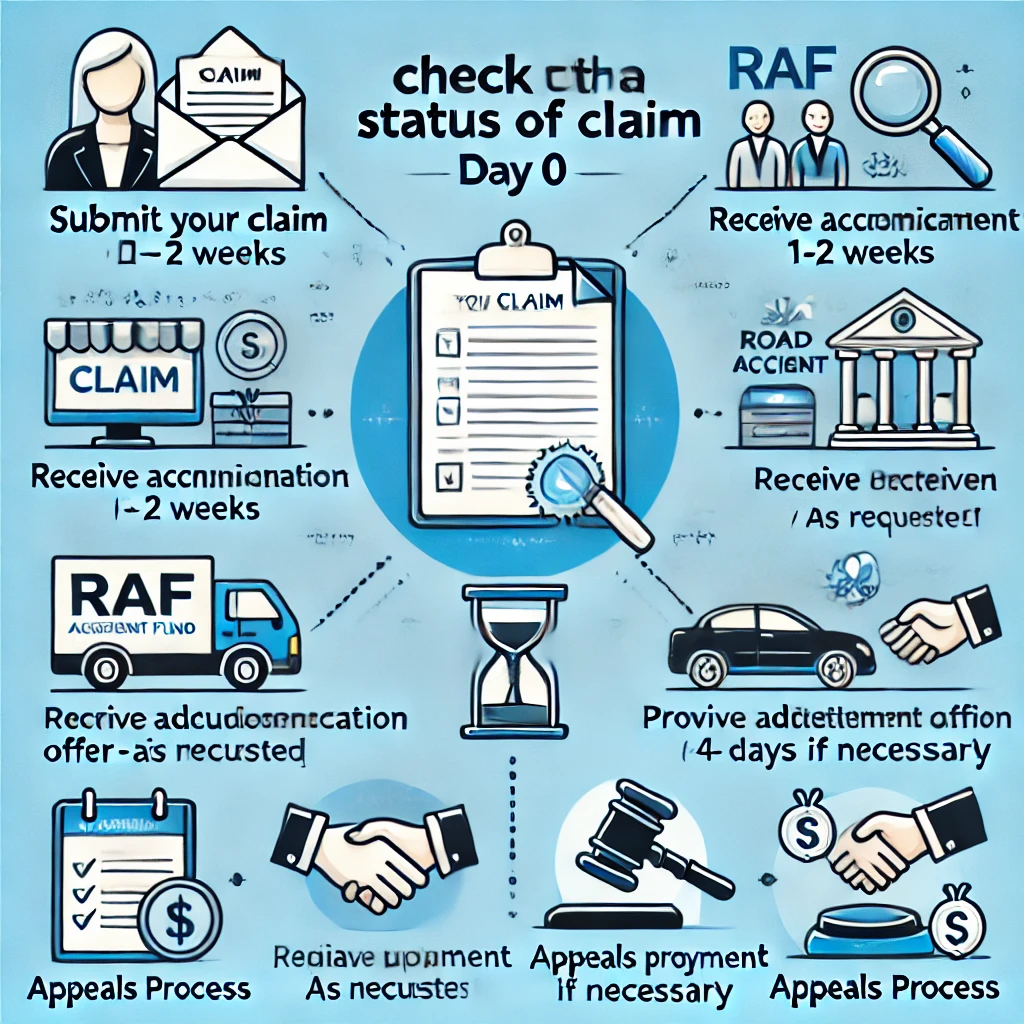
Types of Claims
The RAF covers a range of claim types, reflecting the diverse impacts a road accident can have on an individual’s life:
- Medical Expenses: These include costs incurred for medical treatment immediately after the accident and can extend to cover ongoing treatment and rehabilitation costs.
- Loss of Income or Support: If the accident results in the victim being unable to work, either temporarily or permanently, the RAF provides compensation for lost income. In the case of a deceased victim, the fund compensates the dependents for loss of financial support.
- General Damages for Pain and Suffering: This is applicable in cases of serious injury and compensates for the non-financial impact of the accident, such as pain and suffering, emotional distress, and loss of quality of life.
- Funeral Expenses: In the event of a death resulting from a road accident, the RAF covers reasonable funeral expenses.
Understanding the basics of the Road Accident Fund, including its objectives, eligibility criteria, and types of claims, is essential for anyone affected by a road accident in South Africa.
This knowledge not only helps in navigating the claims process but also provides assurance that there is a system in place to support victims and their families in times of need.
The Road Accident Fund Process
Understanding the RAF Process
The Road Accident Fund (RAF) claim process can be intricate and requires a clear understanding of each step.
Below is a step-by-step breakdown, from the initial stages of appointing an attorney to the final stage of receiving your payment.
1. Appointing an Attorney
- Finding Representation: The first step in the RAF claim process is to appoint an attorney. It’s essential to choose one experienced in RAF claims, as they will guide you through the complex legal procedures.
- Initial Consultation: During your first meeting, the attorney will assess your case, explain your rights, and outline the process ahead. This is also the time to discuss legal fees and any other costs involved.
2. Filing a Claim
- Gathering Documentation: Your attorney will help you gather all necessary documentation, such as medical reports, police reports, proof of earnings, and any other relevant information.
- Submitting the Claim: Once all documentation is in order, your attorney will file the claim with the RAF. This involves completing specific forms and ensuring that all the required details are accurately provided.
3. Medical and Other Assessments
- Attending Assessments: You may need to attend various medical assessments to evaluate the extent of your injuries. These assessments are crucial for determining the amount of compensation you are entitled to.
- Gathering Expert Reports: Besides medical assessments, other expert reports, such as occupational therapy or psychological assessments, might be necessary, depending on the nature of your injuries.
4. Negotiation and Litigation
- Negotiating with the RAF: Your attorney will engage in negotiations with the RAF to reach a settlement amount. This can be a lengthy process, involving several rounds of negotiation.
- Litigation: If a settlement cannot be reached, your attorney may advise taking the matter to court. This involves preparing for and attending a court hearing, where a judge will make a final decision on your claim.
5. Receiving Settlement
- Payment to Attorney’s Trust Account: Once a settlement is agreed upon or awarded by the court, the RAF will make the payment to your attorney’s trust account.
- Transfer of Funds to You: After deducting legal fees and other agreed-upon costs, your attorney will transfer the remaining funds to you. This marks the final step in the RAF claim process.
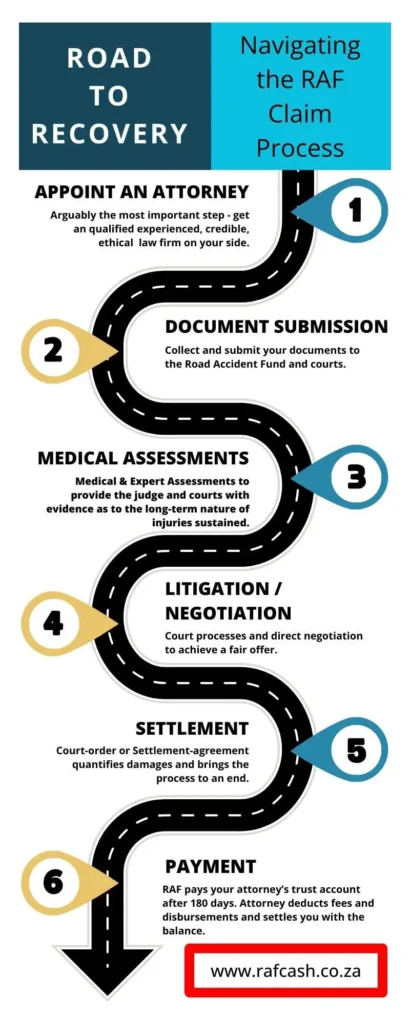
Timeline for Processing Claims
The timeline for processing RAF claims can vary significantly based on several factors.
Here is an estimated timeline, along with factors that can influence the duration:
- Initial Stages (1-3 months): Appointing an attorney and gathering initial documentation. Delays can occur if documents are not readily available or if there are complications in establishing the facts of the case.
- Medical and Expert Assessments (3-6 months): Scheduling and attending medical assessments can take time, especially if multiple assessments are needed. The availability of medical experts can also affect this timeline.
- Negotiation and Litigation (6 months – 2 years): This is the most variable stage. Negotiations can be quick if both parties agree on the compensation amount. However, if the case goes to court, it can extend significantly due to court schedules and legal procedures.
- Finalization and Payment (1-3 months): Once a settlement is reached or awarded, processing the payment typically takes a few months. Delays may occur if there are disputes over legal fees or if the RAF faces administrative backlogs.
It’s important to note that each RAF claim is unique, and the timeline can be affected by factors such as the complexity of the case, the efficiency of your legal representation, and the workload of the RAF and the courts.
Patience and consistent communication with your attorney are key throughout this process.
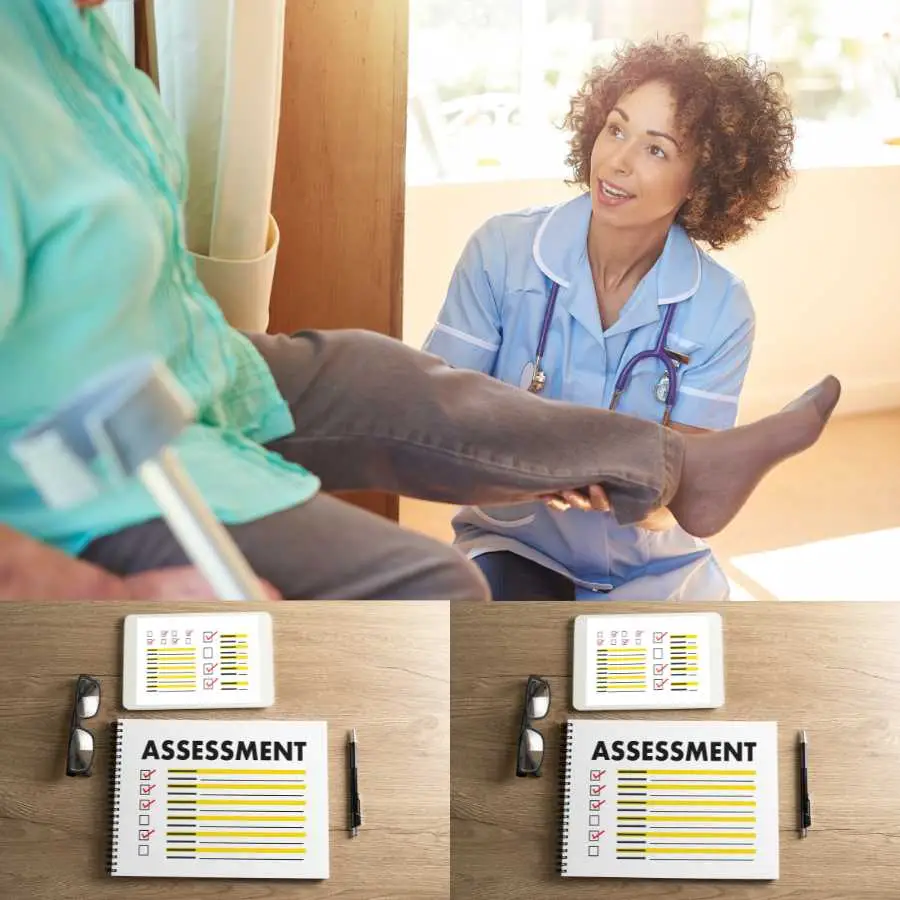
Challenges and Solutions
Common Challenges and Solutions
There are many challenges in getting your payout from the Road Accident Fund.
Understanding these obstacles and knowing how to address them can significantly smoothen your journey, and following up on the status of your claim.
Here are some common challenges claimants face and practical solutions to overcome them.
Challenge 1: Delays in the Claim Process
- Delays are one of the most common issues claimants face with the RAF. This could be due to a backlog at the RAF, slow legal procedures, or delays in obtaining necessary documents and reports.
- Solution: Maintain regular communication with your attorney to stay updated on your claim’s progress. Also, ensure that all your documents are submitted promptly and follow up regularly. Understanding that some delays are inherent in the process can help manage expectations.
Challenge 2: Incomplete or Incorrect Documentation
- Claims can be delayed or rejected if documentation is incomplete, incorrect, or not submitted on time. This includes medical reports, police reports, and proof of income.
- Solution: Work closely with your attorney to ensure all documents are accurate and complete. Double-check all submissions and maintain copies of all paperwork.
Challenge 3: Difficulty in Understanding Legal Jargon
- The legal language and procedures can be complex and confusing for many claimants.
- Solution: Don’t hesitate to ask your attorney to explain terms and procedures in simple language. Understanding each step of the process can alleviate anxiety and confusion.
Challenge 4: Financial Strain During the Process
- The RAF claim process can be lengthy, causing financial strain, especially if you’re unable to work due to injuries.
- Solution: Explore interim solutions such as temporary disability benefits or other social assistance programs. Discuss with your attorney if there are any options for expedited or partial settlements.
Challenge 5: Unresponsive or Inexperienced Legal Representation
- An unresponsive or inexperienced attorney can significantly delay the process and affect the outcome of your claim.
- Solution: Choose your legal representative carefully. If you’re not satisfied with their service, consider seeking a second opinion or changing attorneys.
Challenge 6: Changes in Personal Circumstances
- Personal circumstances, such as changing contact details or moving to a new location, can lead to communication breakdowns.
- Solution: Keep your attorney and the RAF updated about any changes in your contact information or address. Regular communication is key to avoiding unnecessary delays.
Challenge 7: Uncertainty and Stress
- The uncertainty of the outcome and the duration of the process can be stressful.
- Solution: Stay informed about your case and maintain a support network of family and friends. Consider seeking counseling or joining a support group if the stress becomes overwhelming.
By understanding these challenges and their respective solutions, you can better navigate the complexities of the RAF claim process. They can also help you find you RAF claim ststus.
It’s important to stay proactive, informed, and patient throughout your claim journey.
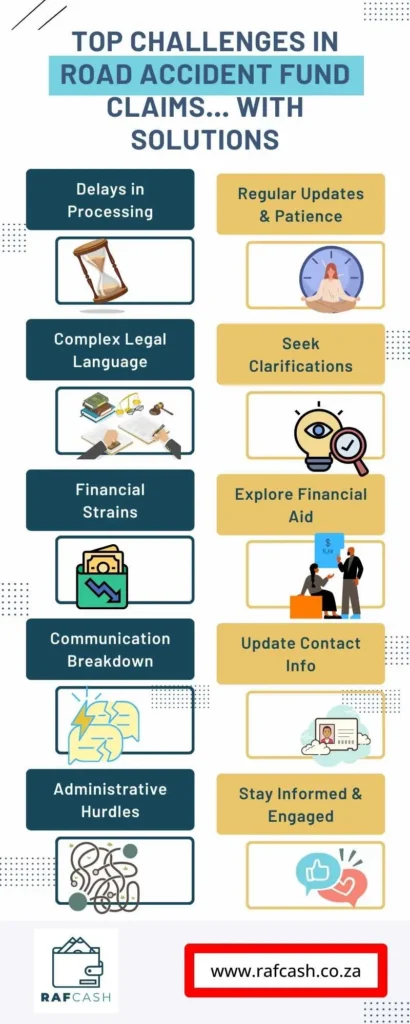
Legal Aspects
A critical part of the claim process are the legal intricacies.
Understanding your rights, especially when it comes to appeals and staying informed about the latest legal and procedural updates, can significantly impact the success of your claim.
Appeals Process
If your RAF claim is denied or the compensation offered is unsatisfactory, you have the right to appeal the decision.
Here’s a breakdown of the steps involved:
1. Review the Decision
- Begin by understanding why your claim was denied or why the offer was lower than expected. Your attorney can help you interpret the RAF’s response and identify any areas of dispute.
2. Gather Additional Evidence
- If the rejection is due to insufficient or inconclusive evidence, gather additional medical reports, expert opinions, or any other relevant documentation that supports your claim.
3. File an Appeal
- Your attorney will guide you through the process of filing a formal appeal. This involves submitting a written appeal with the RAF, outlining the reasons for the appeal and presenting any new evidence.
4. Negotiation and Mediation
- Often, appeals involve further negotiations or mediation. Your attorney may engage in discussions with the RAF to reach a mutually agreeable settlement.
5. Court Proceedings
- If negotiations do not yield a satisfactory result, the next step is to take the matter to court. This legal proceeding will require thorough preparation and a detailed presentation of your case.
6. Awaiting the Verdict
- After the court hearing, there will be a period of waiting for the judge’s decision. Your attorney will keep you informed about the progress and the expected time frame.
It’s important to approach the appeals process with a clear understanding of the reasons for the initial decision and a well-prepared strategy for addressing those issues.
Legal and Procedural Updates
The RAF undergoes periodic legal and procedural changes, which can affect how claims are processed and evaluated.
Staying informed about these updates is crucial. Some recent changes might include:
- Amendments to the RAF Legislation: Changes in legislation can affect claim eligibility, the types of damages that can be claimed, and compensation limits.
- Updated Claim Submission Procedures: The RAF may update its claim submission procedures, including the forms used, the documentation required, and the submission process.
- Shifts in the Compensation Calculation Method: Changes in how compensation is calculated, based on factors like the severity of injuries or loss of income, can significantly impact claim outcomes.
- New Guidelines for Medical Assessments: The RAF periodically updates its guidelines for medical assessments, which could affect the medical evidence required for your claim.
To stay abreast of these changes, regularly check the RAF’s official website, consult with your attorney, and consider subscribing to legal updates related to road accident claims.
Being well-informed not only helps in making a successful claim but also in understanding your rights, following up on the status of your overdue claim, and informaing the scope of the compensation you can seek.
Checking Your Claim Status
Keeping track of your Road Accident Fund (RAF) claim’s progress is crucial for peace of mind and to ensure that the process is moving forward.
Here’s a detailed step-by-step guide on how to check the status of your RAF claim:
1. Understand Your Claim Reference Number
- When you file a claim with the RAF, you will be given a claim reference number. This is also known as a ‘Link Number’. This number is crucial as it is unique to your case and is used to track the progress of your claim.
2. Contacting Your Attorney
- Regular Updates: Your attorney should be your first point of contact for updates. They can provide detailed information on the current status and what to expect next.
- Requesting Information: Ask your attorney for specific details, such as any feedback from the RAF, pending actions, or estimated timelines.
3. RAF Call Centre
- Making a Call: You can directly call the RAF call centre for an update. Be sure to have your claim reference number handy.
- Verifying Identity: The RAF call centre will ask for your personal details to verify your identity before providing any information about your claim.
4. Online RAF Services
- RAF Website: Visit the RAF website and navigate to their claim status checking facility, if available.
5. Email Correspondence
- Sending an Inquiry: You can send an email to the RAF, including your claim reference number and personal details, to request an update on your claim.
- Response Time: Keep in mind that response times may vary depending on the RAF’s workload.
6. Visiting RAF Offices
- Personal Visit: If feasible, you can visit a local RAF office for a face-to-face update. This might be necessary if there are complications with your claim.
- Documentation: Bring identification and your claim reference number when you visit.
8. Regular Follow-Ups
- Consistent Check-Ins: Regularly follow up with your attorney and the RAF. This not only keeps you informed but also shows your active interest in the progress of your claim.
9. Documenting Communications
- Record Keeping: Keep a record of all communications regarding your claim, including dates, names of the people you spoke with, and the information provided.
10. Understanding Delays
- Reasons for Delays: If your claim is taking longer than expected, ask for specific reasons. It could be due to a backlog, additional investigations, or incomplete documentation.
11. Staying Patient and Persistent
- Patience is Key: The claim process can be lengthy. Patience, coupled with persistent follow-ups, can ensure that your claim stays on track.
By following these steps, you can stay informed about the status of your RAF claim and take appropriate actions if there are undue delays.
Remember, staying engaged with the process and maintaining open lines of communication with both your attorney and the RAF are essential for a smooth claim experience.
Detailed Step-by-Step Guide: Checking the Status of Your RAF Claim
Step 1: Submit Your Claim
Ensure all documentation is complete and accurate. Your attorney will file the claim with the RAF. Example: “After a thorough review, Sarah’s attorney submitted her claim, including medical reports, police reports, and witness statements.”
Step 2: Receive Acknowledgment
The RAF will send an acknowledgment letter with a reference number. Example: “Sarah received a letter from the RAF confirming her claim submission and providing a reference number for tracking.”
Step 3: Initial Assessment
The RAF conducts an initial assessment. This includes reviewing submitted documents and assigning a claims handler. Example: “Sarah’s claim was assigned to Mr. Dlamini, who began reviewing her documents.”
Step 4: Communication with RAF
Regularly communicate with your attorney or directly with the RAF using the reference number to check on progress. Example: “Sarah’s attorney contacted Mr. Dlamini monthly to get updates on her claim’s status.”
Step 5: Additional Documentation
Be prepared to provide additional documentation if requested by the RAF. Example: “Sarah had to submit further medical reports when the RAF requested additional information about her injuries.”
Step 6: Settlement Offer
The RAF will make a settlement offer if the claim is approved. Example: “After several months, Sarah received a settlement offer detailing the compensation amount.”
Step 7: Acceptance and Payment
Review the offer with your attorney. If accepted, the RAF processes the payment. Example: “Sarah and her attorney reviewed the offer, accepted it, and she received her compensation within a few weeks.”
Step 8: Appeals Process
If the claim is denied or the offer is insufficient, an appeal can be filed. Example: “Unhappy with the offer, Sarah’s attorney filed an appeal to negotiate better compensation.”
Reaching Out to the RAF for Feedback
If you need direct feedback from the Road Accident Fund (RAF) or have specific questions about your claim, reaching out to the RAF can provide you with the most accurate and timely information. Here are the contact details for various ways to get in touch with the RAF:
RAF Contact Center
- Phone: (+27) 087 820 1111
- WhatsApp: RAF does not currently have a WhatApp number 😞
- Hours: Monday to Friday, 07:45 – 16:00
- Website: www.raf.co.za
- Services: General queries, claim status updates, documentation requirements, appeal processes, and payment-related questions.
RAF Head Office
- Address: 2 Eco Glades Office Park, 420 Witch Hazel Avenue, Centurion
- Google Maps Link
- Phone: (012) 621 1691
- Fax: (012) 621 1640
Walk-in Centers
- Available in major cities across South Africa for face-to-face assistance.
- Example Location:
- Port Elizabeth: 575 Govan Mbeki St, North End, Gqeberha, 6000
- Contact Number: 041 505 5901 / 041 505 5911
Community Service Centers
- Focused on post-accident queries and support.
- Example Location:
- Bloemfontein: 49 Fedsure Building, Floor 5, Charlotte Maxeke Street, Bloemfontein, 9301
- Contact Number: 051 400 8700
Social Media
- The RAF is active on platforms like Facebook, Twitter, Instagram, LinkedIn, and YouTube. Engaging with them on social media can be another way to get updates and support.
Reaching out directly to the RAF ensures that you receive accurate and official guidance on your claim process.
Real-Life Insights
Testimonials and Case Studies
Gaining insights from real-life experiences of individuals who have navigated the Road Accident Fund (RAF) claim process can be invaluable.
These stories not only offer practical lessons but also provide a sense of solidarity and understanding.
Below are a few case studies and testimonials that shed light on the challenges, successes, and various nuances of dealing with the RAF.
Names of been changed for privacy purposes.
Case Study 1: Mr. A’s Lost Opportunity
- Background: Mr. A’s parent was involved in a severe road accident, leading to a potential loss of support claim.
- Challenge: Overwhelmed by the complexity of the process, Mr. A delayed initiating the claim.
- Outcome: After three years, when he finally decided to act, the claim had prescribed, making it invalid.
- Lesson: This case highlights the importance of timely action. Understanding and adhering to the time limits for filing a claim is crucial.
Case Study 2: Mrs. B’s Communication Gap
- Background: Mrs. B appointed an attorney and underwent initial assessments swiftly.
- Challenge: After the initial quick progress, there was a long period of no communication, during which Mrs. B changed her phone number and didn’t update the attorney.
- Outcome: When she finally contacted the attorney, she discovered her file was on hold, and the medical reports had expired, significantly delaying her claim.
- Lesson: Consistent communication is key. Keeping your attorney updated with your current contact information is essential to avoid such setbacks.
Case Study 3: Mr. C’s Proactive Approach
- Background: Mr. C’s claim process was smooth until it hit a snag with the RAF delaying the settlement offer.
- Action: Unlike Mrs. B, Mr. C took proactive steps by consulting with his lawyers and deciding to approach the court for a default judgment.
- Outcome: This move prompted the RAF to prioritize his case, resulting in the much-awaited settlement offer on the day of the court hearing.
- Lesson: Being proactive and taking legal steps when necessary can expedite your claim process.

Testimonial: Jane’s Journey
- Experience: “Navigating my RAF claim felt like a rollercoaster. There were moments of hope followed by periods of frustrating delays. However, with the support of a diligent attorney and regular follow-ups, I eventually received fair compensation. Patience and persistence were my allies in this journey.”
Testimonial: David’s Advice
- Reflection: “My advice to anyone dealing with the RAF is to stay informed and involved. I made the mistake of being too passive, assuming things would move along without my input. Once I started actively participating and communicating with my attorney, things started moving.”
These stories and experiences underscore various aspects of the RAF claim process – the importance of timely action, maintaining communication, being informed, and taking proactive steps when necessary.
Each case is unique, but these testimonials and case studies offer valuable insights that can guide future claimants in their dealings with the RAF.
Remember, understanding the process, staying engaged, and having the right support can make a significant difference in the outcome of your claim.
Did you know...
- Submit Your Claim: The initial step in the RAF claim process involves submitting your claim with complete and accurate documentation.
- Acknowledgment: After submission, you should receive an acknowledgment letter with a reference number within 1-2 weeks.
- Initial Assessment: The RAF conducts an initial assessment of your claim within 2-4 weeks of submission.
- Regular Updates: It’s advisable to schedule monthly check-ins with your attorney or the RAF for updates on your claim’s status.
- Additional Documentation: Be prepared to provide additional documents if requested by the RAF to avoid delays.
- Settlement Offers: Settlement offers typically arrive 4-6 months after submission, though this can vary.
- Appeal Process: If unsatisfied with the settlement offer, you can file an appeal within 30 days.
- Legal Practice Council: If feedback is inadequate, you can escalate the matter to the Legal Practice Council for professional oversight.
- Patience is Key: The RAF claim process involves inherent delays, requiring patience and persistence from claimants.
- Partner with Your Attorney: Treat your attorney as a partner in the process, working together towards the shared goal of a successful claim.
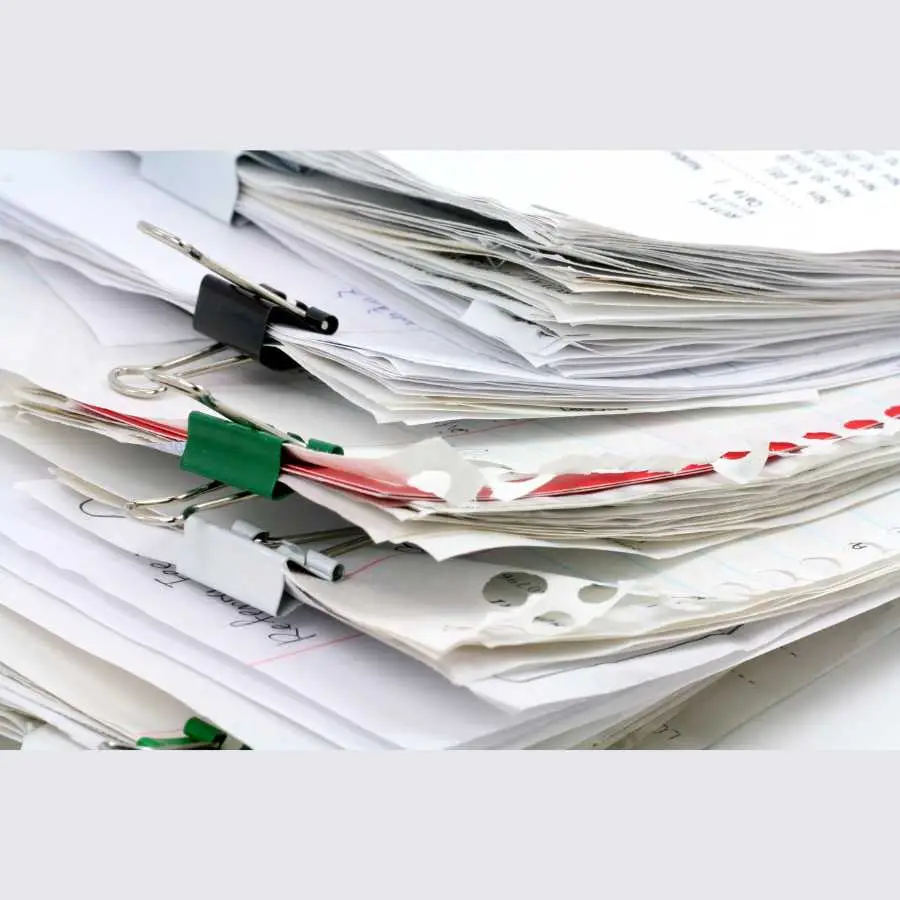
Constructive and Productive Communication with Your Attorney
As we’ve discussed, the Road Accident Fund (RAF) claim process can be lengthy and complex.
Maintaining a balanced approach in communicating with your attorney is essential.
While you have the right to transparent and timely feedback, it’s also important to understand that many delays are outside the attorney’s control.
Here’s how to engage constructively and productively with your attorney.
Communication Style and Tone
Affirmative and Respectful: Use polite and respectful language in all your communications. Acknowledge the effort your attorney is putting into your case.
Constructive Queries: Ask specific, clear questions that help clarify your understanding without overwhelming your attorney. For example, “Could you provide an update on the status of my settlement offer?” rather than “What’s happening with my case?”
Communication Medium
Email: Ideal for detailed updates and sharing documents. It’s a written record that both you and your attorney can refer back to.
Phone: Use for urgent matters or when a quick clarification is needed. It’s more personal and can help in building a good rapport.
In-Person Meetings: Best for complex discussions where face-to-face interaction can provide more clarity and immediate feedback.
Who to Contact
Attorney: For significant updates, legal advice, and major concerns about your case.
Paralegal: For routine updates, document follow-ups, and administrative tasks.
Receptionist: For scheduling appointments or basic inquiries about office procedures.
Frequency of Contact
Regular Updates: Aim for monthly check-ins. This keeps you informed without overwhelming your attorney.
Urgent Matters: Contact as necessary, but avoid frequent, unnecessary follow-ups. Understand that the RAF process involves inherent delays.
Expressing Gratitude
Acknowledge Effort: Thank your attorney or their staff when they provide updates or assistance. For example, “Thank you for the update, I appreciate your help.”
Positive Reinforcement: Highlight what was helpful in their response. This encourages continued support and fosters a positive working relationship.
Escalating Matters
When to Escalate: If you consistently receive poor or delayed feedback, or if your concerns are not being addressed adequately.
How to Escalate: Politely express your concerns and request a detailed update. If issues persist, you can escalate to the Legal Practice Council.
Contacting the Legal Practice Council:
- Website: lpc.org.za
- Email: [email protected]
- Phone: +27 (0) 10 001 8500
- Address: 851 River View Park Street, Riverview Office Park, Halfway Gardens, Midrand, Gauteng, 1685
Terminating Attorney Mandates
Extreme Situations: If communication and service quality do not improve despite repeated efforts, consider terminating the attorney mandate.
Process: Provide a written notice outlining your reasons and request the transfer of your documents. Ensure you have another attorney ready to take over your case.
By following these guidelines, you can ensure your interactions with your attorney are effective and professional, fostering a positive and productive relationship that will help navigate the RAF claim process more smoothly.
Tips to Track your RAF Claims Progress
Stay Organized: Keep all documents, correspondence, and receipts in one place. Use digital tools or folders to maintain order.
Be Proactive: Regularly follow up on your claim’s status. Set reminders for important dates and deadlines.
Clear Communication: Use polite, clear, and specific communication when contacting your attorney or the RAF. Ensure your questions are concise and relevant.
Understand the Process: Educate yourself about each step in the RAF claim process. Knowledge empowers you to navigate challenges more effectively.
Manage Expectations: Recognize that the RAF process involves inherent delays. Patience is essential, as many factors are outside your attorney’s control.
Build a Good Relationship with Your Attorney: Treat your attorney as a partner, not an adversary. Express gratitude for their efforts and maintain open communication.
Seek Legal Advice: Don’t hesitate to consult your attorney when in doubt. Their expertise can help avoid common pitfalls.
Document Everything: Keep detailed records of all interactions, submissions, and responses. This can be crucial if disputes arise.
Escalate When Necessary: If you’re not receiving adequate feedback, consider escalating the issue with your attorney or contacting the Legal Practice Council.
Stay Patient and Persistent: The RAF process can be lengthy, but perseverance and staying informed will help you achieve the best outcome.
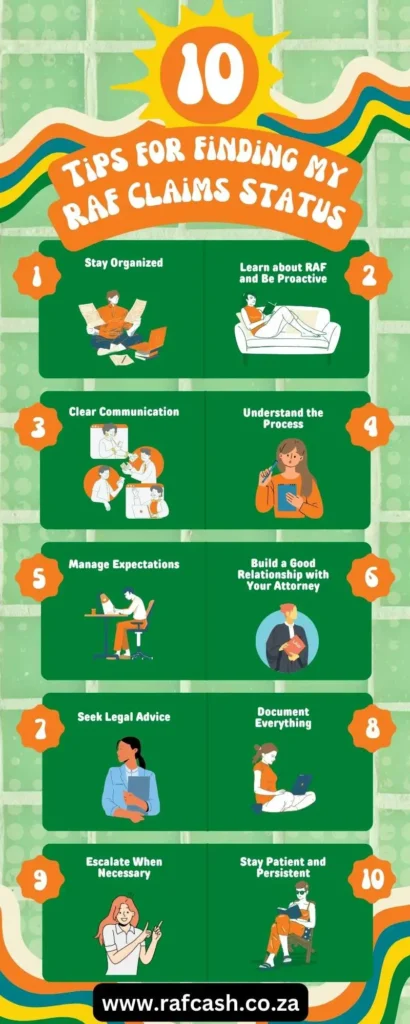
Resources
Useful Contact Information and Resources
For claimants of the Road Accident Fund (RAF), having easy access to essential contact information and resources can significantly streamline the claim process.
Below is a list of key contacts and resources that can be invaluable throughout your RAF claim journey. Additionally, for more comprehensive details, you can visit RAF Cash’s Contact Page.
RAF Call Centre
- Phone: The RAF Call Centre is a primary point of contact for general inquiries and claim status updates.
- Email: For detailed queries or if you prefer written communication, emailing the RAF can be a practical option.
RAF Regional Offices
- Visit in Person: Personal visits to regional RAF offices can be helpful, especially for complex queries or issues that require face-to-face resolution.
- Addresses and Contact Numbers: Each regional office has its own contact number and address, which can be found on the RAF Cash website.
Online Resources
- RAF Website: The official RAF website is a treasure trove of information, including detailed guidelines on the claim process, downloadable forms, and the latest news and updates.
- FAQ Section: Often, quick answers to common questions can be found in the Frequently Asked Questions (FAQ) section of the RAF website.
Legal Assistance
- RAF-Approved Attorneys: For legal representation, consider consulting a list of RAF-approved attorneys who specialize in RAF claims.
- Legal Aid and Pro Bono Services: If you are unable to afford legal services, explore options for legal aid or pro bono legal assistance.
Medical and Expert Reports
- Medical Practitioners: In case you need to undergo medical assessments, having a list of medical practitioners familiar with RAF procedures can be beneficial.
- Expert Witnesses: For complex cases, expert witnesses like accident reconstruction specialists may be necessary. Your attorney can provide recommendations.
Support Groups and Counseling
- Trauma and Counseling Services: The aftermath of a road accident can be emotionally challenging. Accessing support groups and counseling services can provide much-needed emotional support.
- Community Resources: Engaging with community resources and support networks can offer additional guidance and shared experiences from others who have navigated the RAF claim process.
RAF Cash Services
- Additional Assistance: For further assistance and specialized services related to RAF claims, RAF Cash offers a range of services that can be explored on their website.
Having these contacts and resources at your fingertips can make the process of navigating your RAF claim more manageable and less stressful.
Remember, staying informed and seeking the right assistance at the right time is key to a successful claim experience. For a more detailed list of contacts and additional resources, visit RAF Cash’s Contact Details.
How to check my raf claim status online
Unfortunately, there is currently no online self-service portal to check your Road Accident Fund status online.
However, the RAF website does contain useful information to help you get educated on the RAF process.
Key Takeaways
As we reach the end of our guide on navigating the Road Accident Fund (RAF) claim process, it’s essential to reflect on the key takeaways that can make a substantial difference in your claim experience.
The journey through the RAF system can be complex and demanding, but with the right approach and mindset, it can be navigated successfully. Here are the crucial points to remember:
Emphasize Accountability
- Own Your Claim: Take charge of your claim process. This means being proactive in gathering information, following up on your claim’s progress, and ensuring all your documentation is accurate and submitted on time.
- Timely Action: Be mindful of time limits and deadlines. Acting promptly can prevent your claim from becoming invalid due to prescription.
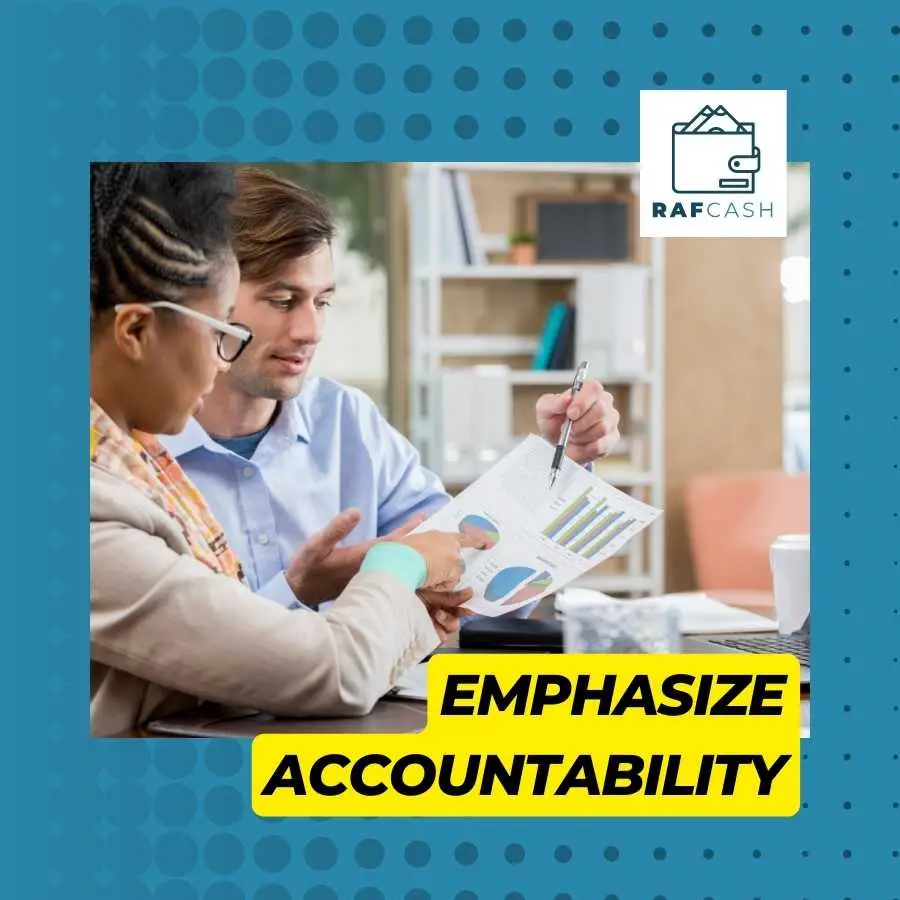
Work with Experienced Professionals
- Choose the Right Attorney: The importance of working with an attorney who specializes in RAF claims cannot be overstated. Their expertise can guide you through the legal complexities and improve your chances of a favorable outcome.
- Seek Expert Opinions: Sometimes, getting a second opinion or consulting with medical or legal experts can provide additional perspectives that strengthen your claim.

Be Proactive
- Stay Engaged: Regularly check the status of your claim and keep in touch with your attorney. Don’t hesitate to ask questions or seek clarifications whenever necessary.
- Address Delays Actively: If you encounter delays, investigate the reasons and explore options to move things forward, such as legal steps or additional negotiations.

Maintain Patience
- Understand the Process: Recognize that the RAF claim process can be lengthy and often requires patience.
- Manage Expectations: Keep realistic expectations about timelines and outcomes, and prepare for possible delays.
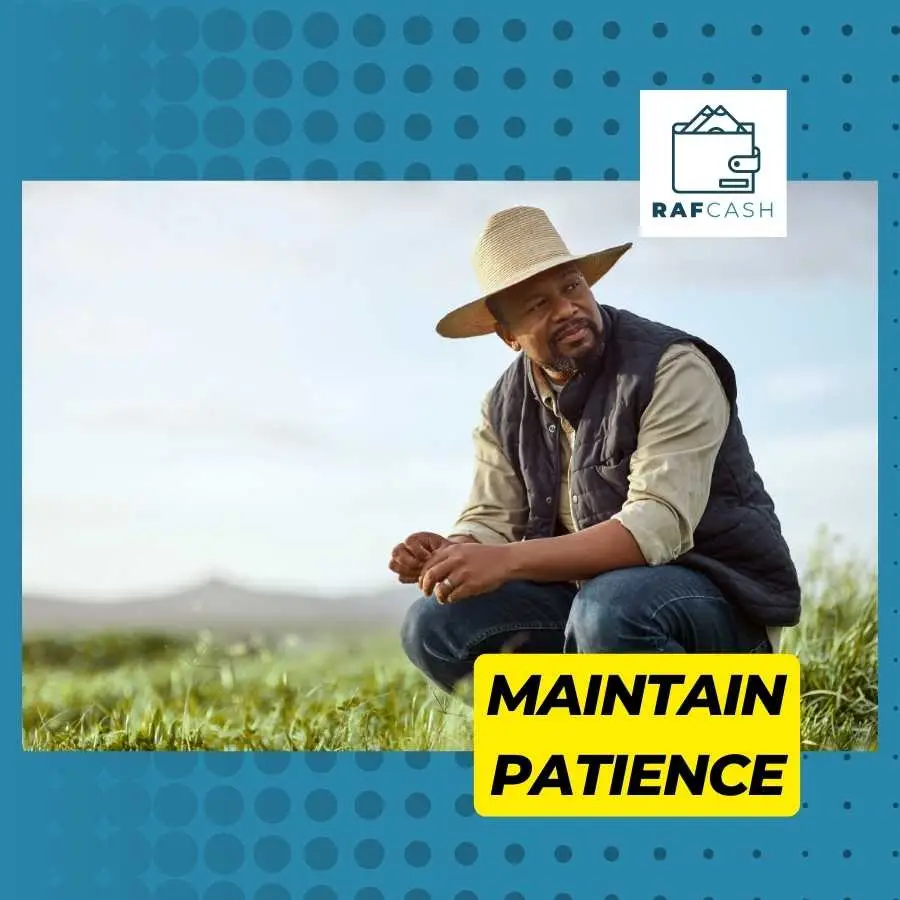
Consistent Communication
- Update Your Information: Always keep your contact details up-to-date and inform your attorney and the RAF of any changes.
- Record Keeping: Maintain a clear record of all communications, documents submitted, and any correspondence received related to your claim.

In conclusion, the Road Accident Fund process can be complex and challenging, but with the right knowledge and approach, you can effectively manage and track the status of your RAF claim.
By staying organized, proactive, and maintaining clear communication with your attorney, you can avoid common pitfalls and ensure a smoother journey.
Remember, patience and persistence are key, as many delays are beyond your control.
Treat your attorney as a partner in this process, and don’t hesitate to seek legal advice when needed.
With these tips, you’re well-equipped to handle your RAF claim successfully and efficiently.
Frequently Asked Questions
Who can claim from the RAF?
Victims of road accidents, dependents of deceased accident victims, and even non-residents involved in accidents within South Africa can claim from the RAF.
What types of claims can I make through the RAF?
You can claim for medical expenses, loss of income or support, general damages for pain and suffering, and reasonable funeral expenses.
How do I start an RAF claim?
Begin by appointing an experienced attorney who will help you gather necessary documents and submit your claim to the RAF.
What documents do I need for an RAF claim?
You’ll need medical reports, a police report, proof of income, and any other relevant documentation related to the accident and your injuries.
How long does the RAF claim process take?
The timeline varies, but it can take from several months to a few years, depending on the complexity of the claim and the efficiency of the legal process.
What if my RAF claim is denied?
If your claim is denied, you can file an appeal with the help of your attorney, providing additional evidence or addressing the reasons for the denial.
Can I check the status of my RAF claim?
Yes, you can check your claim status by contacting your attorney, calling the RAF call center, or using online services if available.
What are common challenges with RAF claims?
Common challenges include delays in processing, incomplete documentation, complex legal language, financial strains, and communication breakdowns.
Glossary
- Claim Handler: The person responsible for managing your claim at the RAF.
- Acknowledgment Letter: A document from the RAF confirming receipt of your claim.
- Settlement Offer: A proposal from the RAF outlining the compensation amount.
- Medical Report: A document detailing your injuries and medical treatment.
- Reference Number: A unique number assigned to your claim for tracking purposes.
- Initial Assessment: The first review of your claim by the RAF.
- Appeal: A request to reconsider a decision or settlement offer by the RAF.
- Compensation: Money awarded to cover losses and damages from the accident.
- Submission: The process of formally sending your claim and documents to the RAF.
- Legal Advice: Guidance provided by an attorney regarding your claim.
- Claim Process: The series of steps involved in filing and managing an RAF claim.
- Follow-Up: Actions taken to check the progress or status of your claim.
- Documentation: All necessary forms and papers needed for your claim.
- Timeline: A schedule of expected events and durations in the claim process.
- Claimant: The person making a claim to the RAF for compensation.
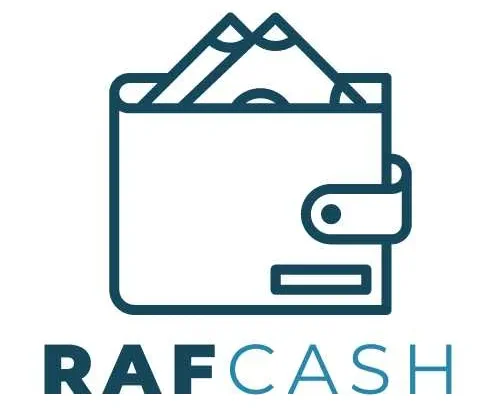

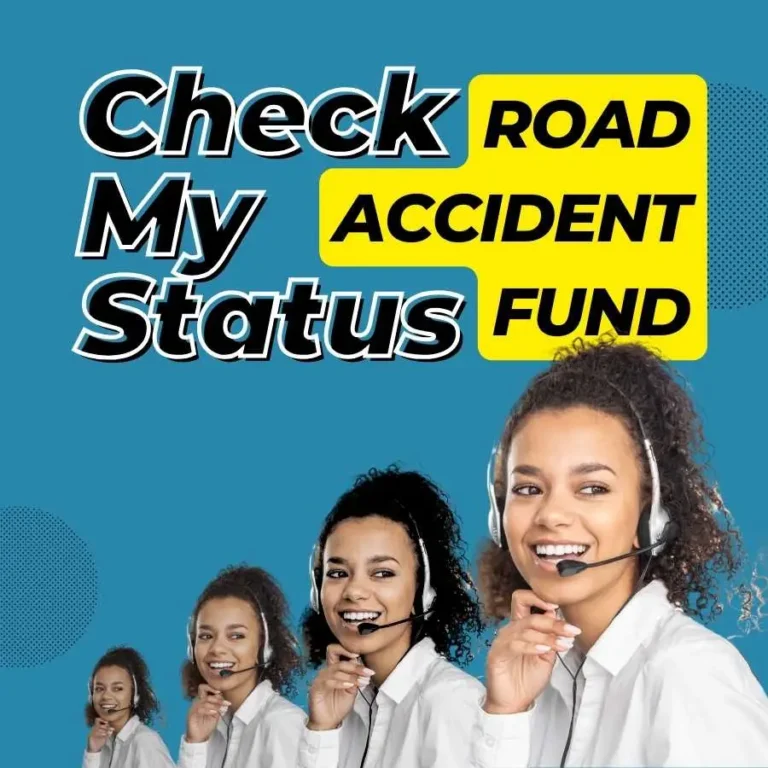
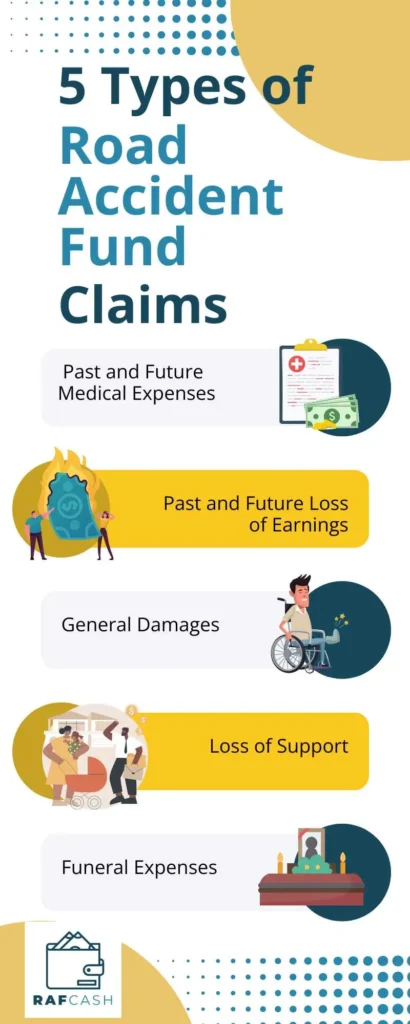


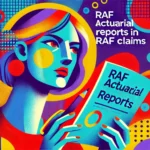

84 Responses
I wanna check my status but I lost my reference number what must I do?
Hi Nothando. You can contact the Road Accident Fund on 012 621 1691 / 0860 23 55 23.
They should be able to tell you if they have record of a claim linked to your ID.
You should also ask them for a your ‘RAF Link Number’ – this is your unique claim number on the RAF system (think similar to an ID number) – and will help you with future follow ups.
If there is no claim and you need an attorney please let us know and we will point you in the right direct.
I wanna check my status I lost my reference also.
How are you Mr Marc, I’m Musa I had an accident 2013 an my left leg was broken an had to do operation, so I did claim after the process the only thing they told me was that the was no money I must get. The only money that is available is for checkups when I need to go to doctor.
Hi my claim was rejected and I longed a appeal ,sow I want to n
ow how to check my appeal status
My mom had an accident in 1998 she had started the process of claiming through a lawyer called Mkhonto but he passed away and she was advised that the claim has expired, can you assist with any knowledge about how she can go about this.
Hi I want to check my status I submit everything but I didn’t receive reference nr
Hi Zukiswa. From your question it sounds like a direct claim? Unfortunately you will need to follow up directly with the RAF.
If you are unsuccessful feel free to see https://rafcash.co.za/claimassist
Makhado 0920
Its been years now since I’ve waiting for my raf I want to know if it is payout or not contact me on 0818484828
How to check if did the RAF pay but someone claimed didn’t know?
Hi Landela. You can contact the Road Accident Fund on 012 621 1691 / 0860 23 55 23.
They should be able to tell you if they have record of a claim or payment linked to your ID.
If there is no claim and you need an attorney please let us know and we will point you in the right direct.
I wanna check my status
I want to check my status
I want to know about offer
I want to no about my status
I got my claim paper how do I get incontact with raf
Read our article on how to contact the Road Accident Fund
It’s 8 years now my mom claimed nothing
A common misconception about the Road Accident Fund (RAF) is the absence of deadlines for filing claims. This can result in missing the chance for compensation, as there are definite deadlines for submitting claims.
The standard rule is that a claim must be submitted to the RAF within three years of the accident date. However, if the driver or vehicle owner responsible for the accident is unidentified (like in hit-and-run scenarios), the claim needs to be filed within two years.
These deadlines are stringent, and not adhering to them usually means the claim will be rejected, forfeiting the right to compensation. Therefore, it’s essential to initiate the claim process promptly following the accident. This ensures that all necessary documents and evidence are collected and submitted within these specific timeframes.
For specific legal advice please contact a qualified attorney.
I need help since 2019 until now my daughter was in road
accident
I WANT TO KNO WHEN IM GOING TO GET MY RAF
Hi I lost my original doctor report n I have Xrays pic only so ..what must I do coz RAF need original report
Good day,Please check the status of my son’s claim lebome tashwill badenhorst under my ID jo 8209045779088 please check xause the lawyer is giving me the run around,please contact me at 0631309069/0827214807
Hello i want to check my father status since from 3 to 4 years back we never got answers
Im straggling to get feedback on my claim with RAF
Im straggling to get feedback on my claim for Raf
I’m struggling to get feedback on my claim for Raf.
If you done with medical assessment submitted all required documents waiting for court date, normally how long does it takes for that??
And how to create a profile on RAF to track the process?
Want to check my status
good day
it is now 5 years and 2 months since my fiance passed away i really struggle with the lawyaers and in the mean time i struggle
financialy i did submit all my documents and also did not agree on the sap statement *
How can I submit my application for claims.
What is yhe website for checking my status online
Want to check in my status
Checking my claim status from 2016 till today my attorney is ignoring me when I phone him
Can i see my claim status
It’s been 4 years now
Can I c my claim status pls,its been 11years now?
What does claim status deleted mean when a person has an existing claim?
I need a serious help GOD
How to check claim status via online/email,can’t find where should send ID and link number.
Hi..My son got injured in 2017 we claimed and went through all the process but up to this far there’s nothing.
I valentino keenan is waiting from 20214 and still did not get a answer from my lawyer they dont reply.
Why raf says they can’t pay while a victim suffer net ,they only provide medical certificates
Good morning I’d like to have a assistant regards my previous accident
By 2003 I went to the hospital but they said no one can assist me
Is it possible for you guys to write a letter that I can go with to them
Hi I need help I don’t know where to start
My compensation claim
It’s been over 7 years.
My brother since waiting he done everything.the told my brother wait for court is about 4yrs nw
Hey I need I help it’s been over 4 years how can I check my status can I see my claim status am struggling to get feedback pls help
I was involved in accident in 2019, and made a direct claim in 2020 March, the procedures were followed and the required documents were submitted to RAF, with several telephonic and email follow ups, up to such time they called me in November 7th 2023 to inform me that i will be called for Dr’s appointment for assessment of my injuries hence i had pilon fracture on my right leg/foot, i dont know how long it takes for RAF to get drs appointment for the claimant it is now 3 months awaiting to get the date and on the 1st of Feb I went to the RAF offices in Menlyn and i got the feedback that they still waiting for the appointment date, can i get clarity of the waiting period to get the drs appointment date please, no one says positive answer , it is so dissapointing not to get the reason of the whole waiting procedures
Dear sir/madam
We’ve applied the attorney gave us this year’s date says the pay out is on the 28 of February but we the date has passed without any payment so we wanted to know whats the delay
Thanks Sizakele.
There are so many factors which can cause delays, caused by court system, RAF, attorneys and sometime also claimants.
Have you tried following up with your attorneys?
What does ‘Committed Status B and T’ on the RNYP Report mean?
Hi Florence,
I believe these indicate different payment statuses per the RAF internal payment processes.
It is my understanding that B = Batched, T = Treasury Ready.
This is more useful for internal RAF staff and processing.
However, the aging is the field primary field to track on each case – against the 180-day expected term.
I’d like to check my claim
Hi
I need help. I was involved in an accident in 1998 and sustained head injury. That year I went through psychologist and trauma counseling sessions with my mom. We were also going to lawyers office to submit reports. From what I heard that lawyer received my claim money but only paid my mom R5000.00 as she was illerate. How do I go about finding out how much was paid and recovering from this lawyer
guys my late mom ‘s case was settled last year MARCH in court since then I have been waiting to receive the payment the lawyers are now silent not responding at all how can I make the follow up please help!?
Hello
My husband made a claim through attorney in 2019 it seems everything was going smoothly because he went to his doctors several times and he told Raf accepted the matter but today when we call Raf they tell him that case was rejected
Hi I wanna check my claim status
Hi I wanna check my status please, via email or whatsapp me to 0718363388
Hi guys is be long I wait the money for my child and is be 8 years now please help me
Hi I wanna check my status
Want to check my status
Want to check my status
Hi I have been in an accident in 2017 I am struggling to get my RAF.I made a claim directly from Raf Sebokeng.
Good Day
We list our father back in 2013 due to a car accident and we claim for RAF but even until this day we have not received any payment,what do we need to do to make follow up?
How do I check RAF status for my deceased father as the attorneys are no longer reachable
My is nomvuyiso.My claim is from 2014 for my son Lamla he was 4 now he is 16 still waiting.
Hello ..my brother in-law was involved in an accident 2020 and stayed 2 months at hospital after that some attorneys came to us and filled some forms and they promised to come back to take my brother to the doctors but they never did…till today we still waiting to hear from them we don’t even know about the pay out
Hello…I was recently told that my attorney’s have failed to submit the summons. Here’s the part I don’t understand,both my attorney’s and RAF are at fault for lacking communication and doing follow up. I was busy sick trying to get back on my feet thinking that everything is taken care of. Now I’m told my claim has been rejected because of the lawyers and there’s no way I can appeal or reapply. How does RAF close the persons case and can they do so without communicating with them first. Thank you.
How do I drive my claim forward and check for updates
How can I check my claim is 5 years now
Hi just wanna check my claim status please
Hi just wanna check my claim status please
How do you know the correct amount was paid out, when a lawyer was appointed
hi I jus wanna check my claim status please since 2017
I want to check my claim
I want to claim
Hi just wanna check my claim status please
Hi I Want To Check The Claim Was Paid To Attorney Marlan Naidoo As My Twin Brother Is Late
Hi Vincent, you will need to follow up with the fund directly. Alternatively try contacting your attorneys to get an update.
If you need additional help you can try Claimassist
Plz can u check my status for me with RAF since 2006 nothing has happened coz lawyers have calmed on my behalf and told me that they were now on the settlement stage after that nothing.
Ok, that sounds positive – but I’m guessing from your comment that you are skeptical? Have all the usual steps been followed – RAF1, summons, medical assessments, court dates, etc??
ID number 8812265283085
Names – Siyabonga Hope Sigudu/Langa
How can we help you?